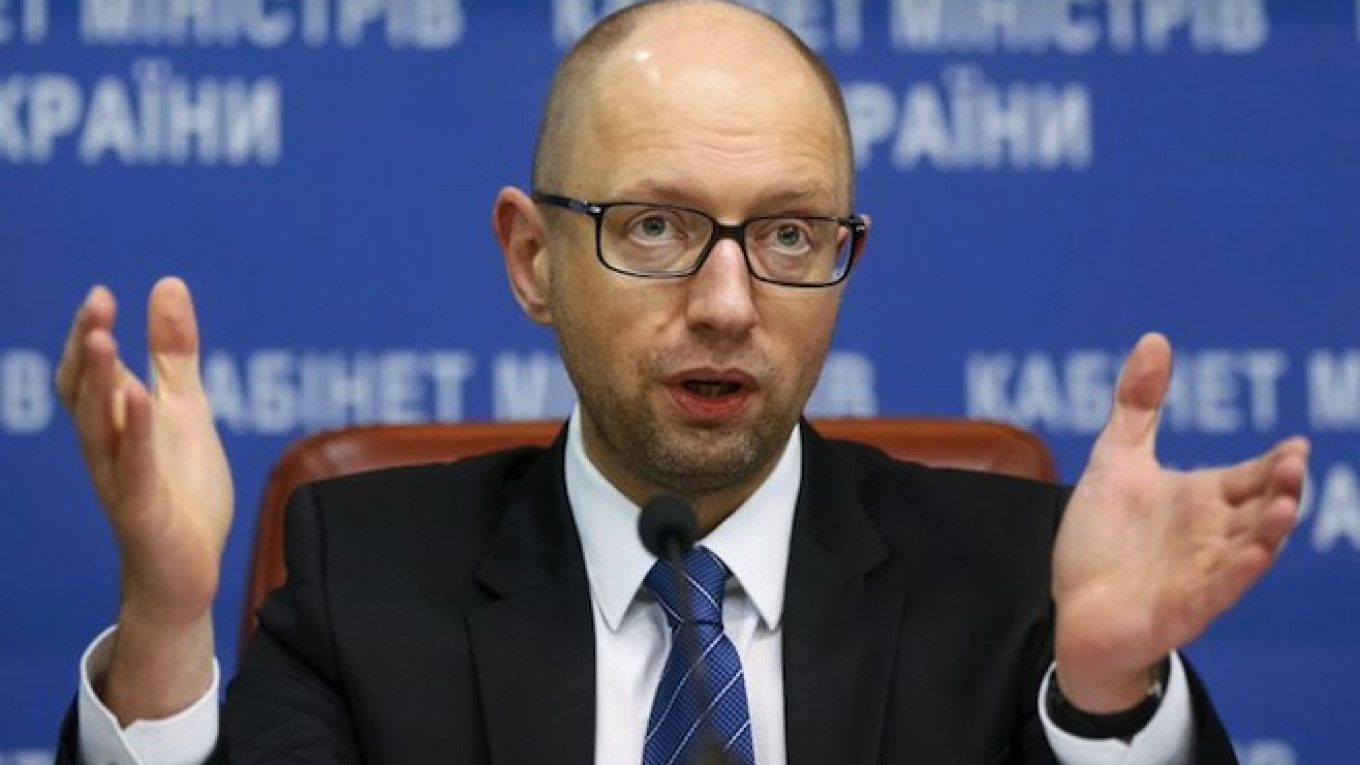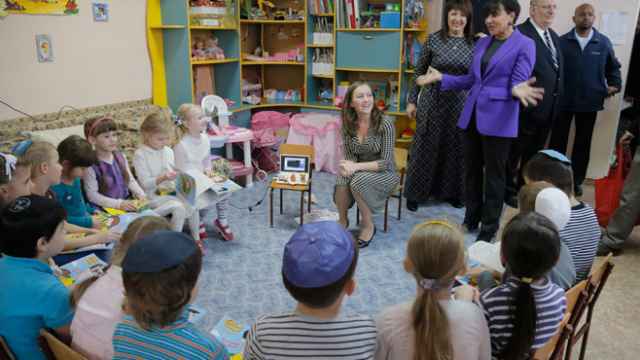Ukrainian Prime Minister Arseniy Yatsenyuk has rejected Russia's restructuring proposal for the repayment of Kiev's eurobond debt, and said the “aggressor state” should accept the same terms as other bondholders.
The “basic conditions” that must be included in any debt restructuring plan include a 20 percent reduction on the face value of the loan and a four-year average maturity extension, Yatsenyuk said in an interview Thursday with Ukraine's First National television network.
He also threatened a moratorium on repaying the $3 billion debt to Russia, unless Moscow agreed to those terms, media reports said. He referred to Russia as the “aggressor state.”
His snappish interview aired a day after Russian Prime Minister Dmitry Medvedev said Ukraine should “stop acting out” and pay up, according to comments carried by the RBC news agency.
Creditors have accepted Kiev's restructuring terms for 13 of Ukraine’s 14 eurobonds, Bloomberg reported on Nov. 13.
Russian President Vladimir Putin, however, proposed this week that Ukraine pay down its eurobond debt in installments of $1 billion, starting in 2016.
The proposal was an easing of Moscow's previous demand that Ukraine repay the loan in full by the end of this year.
Putin praised his new proposal, saying, “we have offered better conditions than the International Monetary Fund was asking of us,” the TASS news agency reported.
But Yatsenyuk scoffed at the Russian president's suggestion that his offer was more generous than Kiev's restructuring plan — which along with the 20 percent write-down and a four-year extension includes raising average interest payments to 7.75 percent on the new bonds, according to Bloomberg.
“I have stated [to Russia]: You aren't getting any different terms from other creditors,” Yatsenyuk said, the RIA Novosti Ukraina news agency reported.
The terms of Ukraine's bonds stipulate that the Russian government cannot be awarded better financial terms than have been given to other investors, RBC reported Tuesday.
Yatsenyuk threatened a moratorium on repaying the debt to Russia on Nov. 13 — just days before Putin came out with his new proposal.
Speaking on the sidelines of the G20 summit this week, Putin said he had discussed Ukraine's debt repayment with U.S. President Barack Obama and IMF President Christine Lagarde, Russian media reported.
In addition to seeking special terms for Ukraine's debt repayment, Russia also asked that the United States or “one of the reputable international financial institutions” guarantee its loan, the RBC news agency reported Tuesday.
Russia provided the $3 billion to Kiev in late 2013, during the rule of Ukraine's former, Moscow-backed President Viktor Yanukovych. Some said the money was issued to dissuade Yanukovych from signing an association agreement he had been contemplating with the European Union.
Ukrainian President Petro Poroshenko said the money was intended to ensure Yanukovych's loyalty to Moscow, and called the payment a “bribe,” according to an interview with Bloomberg in June this year.
Yanukovych backed out of the planned agreement with the EU, prompting pro-Western Ukrainians to take to the streets in massive protests that forced Yanukovych from power in February 2014.
A Message from The Moscow Times:
Dear readers,
We are facing unprecedented challenges. Russia's Prosecutor General's Office has designated The Moscow Times as an "undesirable" organization, criminalizing our work and putting our staff at risk of prosecution. This follows our earlier unjust labeling as a "foreign agent."
These actions are direct attempts to silence independent journalism in Russia. The authorities claim our work "discredits the decisions of the Russian leadership." We see things differently: we strive to provide accurate, unbiased reporting on Russia.
We, the journalists of The Moscow Times, refuse to be silenced. But to continue our work, we need your help.
Your support, no matter how small, makes a world of difference. If you can, please support us monthly starting from just $2. It's quick to set up, and every contribution makes a significant impact.
By supporting The Moscow Times, you're defending open, independent journalism in the face of repression. Thank you for standing with us.
Remind me later.






